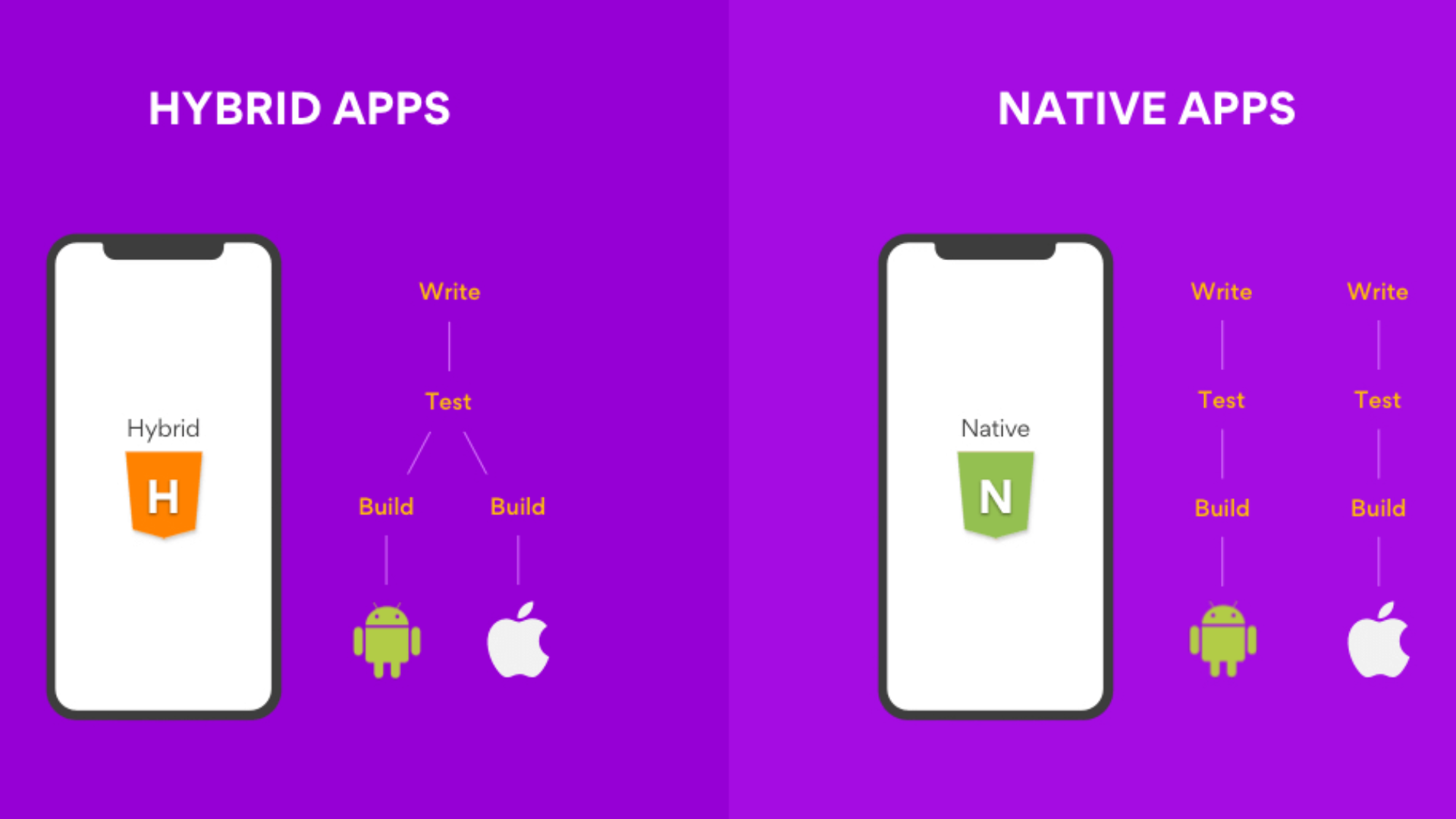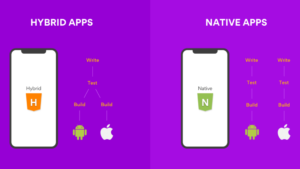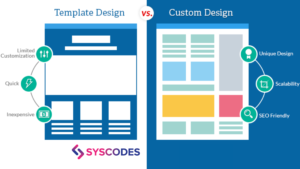The rise of mobile applications has transformed the way we interact with technology, providing seamless access to services, entertainment, and information. As businesses and developers seek to deliver their products to a mobile audience, they face a crucial decision: native app development or hybrid app development? In this blog, we’ll explore the key differences between these two approaches, their pros and cons, and factors to consider when making a decision.
Native App Development
Native app development involves creating applications specifically for a particular platform, such as iOS or Android, using programming languages and development tools that are native to that platform. For iOS, developers use Swift or Objective-C, and for Android, they use Java or Kotlin. The resulting apps are designed to take full advantage of the platform’s hardware capabilities, providing the best possible user experience.
Advantages of Native App Development:
- Performance: Native apps are optimized for the specific platform, offering superior performance, responsiveness, and smooth animations. This is crucial for resource-intensive applications like games and complex productivity tools.
- User Experience: Native apps provide a familiar and consistent user experience, adhering to platform-specific design guidelines and interactions. This enhances user satisfaction and increases the chances of success in the competitive app market.
- Access to Native Features: Developers can access a wide range of native features, such as the camera, GPS, sensors, and hardware accelerators, enabling them to create feature-rich and robust applications.
- Offline Capabilities: Native apps can function without an internet connection, allowing users to access certain features and content offline.
- Security: Native apps have access to the platform’s built-in security measures, reducing the risk of data breaches and vulnerabilities.
Disadvantages of Native App Development:
- Development Time and Cost: Creating separate apps for each platform requires more time, effort, and resources, increasing the development cost.
- Maintenance: Updating and maintaining multiple codebases for different platforms can be challenging and time-consuming.
- Learning Curve: Developers need to be proficient in platform-specific languages and development environments.
Hybrid App Development
Hybrid app development combines elements of web development with native features to create applications that work across multiple platforms. These apps are essentially web applications embedded within a native container, utilizing technologies like HTML, CSS, and JavaScript.
Advantages of Hybrid App Development:
- Cross-Platform Compatibility: Hybrid apps can run on multiple platforms with a single codebase, reducing development time and cost.
- Faster Development: Since developers can reuse code for different platforms, development time is significantly reduced.
- Simplified Maintenance: Updates and changes can be made once and applied across all platforms, streamlining maintenance efforts.
- Access to Web Technologies: Hybrid apps can leverage web technologies and frameworks, making it easier for web developers to transition into mobile app development.
Disadvantages of Hybrid App Development:
- Performance: Hybrid apps might not match the performance of native apps, especially for resource-intensive tasks and complex animations.
- User Experience: Achieving a seamless user experience across platforms can be challenging due to differences in design and interactions.
- Limited Native Features: Hybrid apps may have restricted access to certain native features, limiting their functionality.
- Dependence on Third-Party Tools: The use of third-party frameworks and tools may introduce dependencies and compatibility issues.
Conclusion
In conclusion, the choice between native app development and hybrid app development depends on various factors, including project requirements, budget constraints, development timeline, and the desired user experience. Native apps offer superior performance and access to native features, making them ideal for resource-intensive applications. On the other hand, hybrid apps provide cost-effective cross-platform solutions and are well-suited for simpler applications or when a quick market release is essential.
Ultimately, both approaches have their merits, and the decision should be based on a thorough evaluation of the specific project’s needs and long-term goals. Regardless of the choice, the mobile app market continues to evolve, and staying up-to-date with the latest trends and technologies is crucial for any successful mobile app venture.





